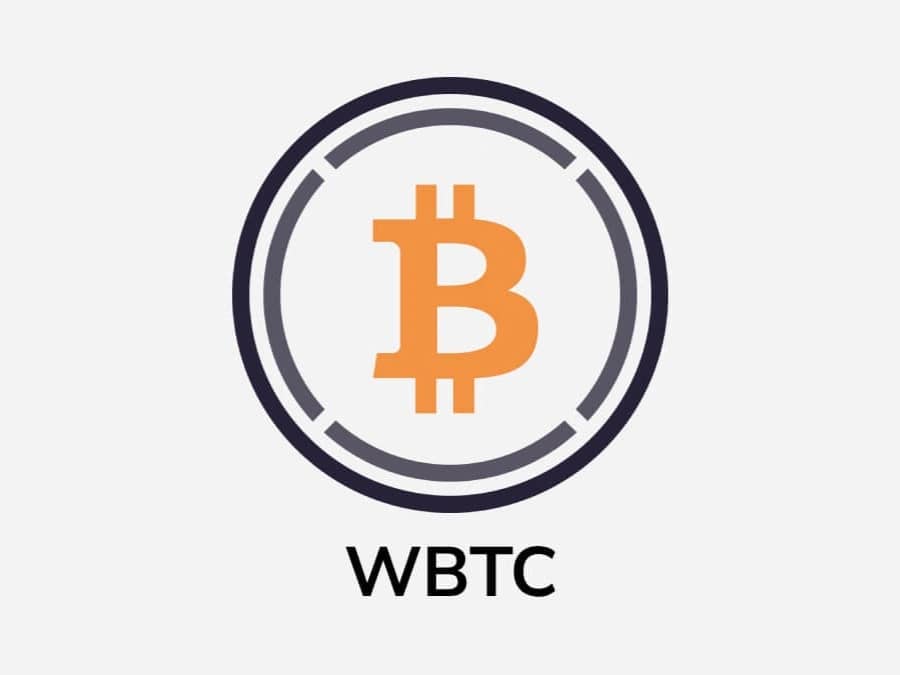위키 구독하기
Share wiki
Bookmark
Arbitrum Bridged WBTC
0%
Arbitrum Bridged WBTC
**Arbitrum Bridged WBTC(Arbitrum One)**는 Arbitrum One 네트워크에서 Wrapped Bitcoin(WBTC)을 나타내며, 사용자가 Arbitrum 생태계 내에서 비트코인의 가치를 활용할 수 있도록 합니다. 이는 이더리움 메인넷에 비해 더 빠르고 저렴한 거래를 가능하게 하는 WBTC에 1:1로 고정된 ERC-20 토큰으로 기능합니다.
개요
Wrapped Bitcoin(WBTC)은 비트코인(BTC)에 의해 1:1로 뒷받침되는 이더리움 블록체인의 ERC-20 토큰입니다. 이는 비트코인 보유자가 주로 이더리움에 구축된 탈중앙화 금융(DeFi) 애플리케이션 및 스마트 계약에 참여할 수 있도록 합니다. Arbitrum Bridged WBTC는 이더리움용 레이어 2 확장 솔루션인 Arbitrum One에서 WBTC를 사용할 수 있도록 하여 이 기능을 확장합니다.
WBTC를 Arbitrum One으로 브리징하는 주된 목적은 거래 속도 증가 및 가스 수수료 감소를 위해 Arbitrum의 아키텍처를 활용하는 것입니다. 사용자는 이더리움 메인넷에서 WBTC를 브리지를 통해 Arbitrum One으로 입금하여 그 대가로 Arbitrum Bridged WBTC를 받을 수 있습니다. 그런 다음 이 브리지된 자산은 탈중앙화 거래소(DEX)에서 거래, 대출 프로토콜에 참여, 기타 DeFi 애플리케이션 참여와 같은 다양한 활동을 위해 Arbitrum 생태계 내에서 사용할 수 있습니다.
이더리움 메인넷과 Arbitrum One 간에 자산을 이동하는 프로세스에는 브리징 메커니즘이 포함됩니다. WBTC의 경우 이는 한 체인에서 자산을 잠그고 다른 체인에서 동일한 표현을 발행하는 것을 의미합니다. Arbitrum의 브리지는 이 전송을 용이하게 하여 사용자가 이더리움 레이어 1의 높은 보안 환경과 Arbitrum 레이어 2의 확장 가능한 환경 간에 WBTC 가치를 이동할 수 있도록 합니다. [1] [3] [5] [7] [8]
기술
Arbitrum Bridged WBTC는 Arbitrum One 네트워크에서 ERC-20 토큰으로 작동합니다. 기본 기술은 이더리움 메인넷과 Arbitrum One을 연결하는 크로스 체인 브리지에 의존합니다. 사용자가 WBTC를 이더리움에서 Arbitrum으로 이동하려는 경우 이더리움의 브리지 계약과 상호 작용하여 WBTC를 잠급니다. 그런 다음 브리지는 Arbitrum One 네트워크와 통신하여 Arbitrum의 사용자 주소로 동일한 양의 Arbitrum Bridged WBTC 토큰을 발행합니다.
반대로 Arbitrum Bridged WBTC를 이더리움 메인넷으로 다시 이동하려면 사용자는 Arbitrum One의 브리지를 통해 인출을 시작합니다. 이 프로세스에는 일반적으로 레이어 2에서 Arbitrum Bridged WBTC 토큰을 소각하는 작업이 포함되며, 이는 브리지에 이더리움 메인넷에서 잠긴 해당 WBTC를 해제하도록 신호를 보냅니다. Arbitrum One은 낙관적 롤업 기술을 활용하여 트랜잭션을 오프체인에서 처리하고 압축된 트랜잭션 데이터를 이더리움 메인넷에 게시하여 정확성을 보장하기 위해 분쟁 해결 기간에 의존합니다. WBTC와 같은 자산 브리징은 효율성을 위해 이 레이어 2 아키텍처를 활용합니다. Li.Fi와 같은 애그리게이터를 활용하는 크로스 체인 브리지는 Arbitrum, 이더리움, Polygon 등을 포함한 다양한 블록체인 네트워크 간에 WBTC 전송을 용이하게 합니다. [1] [2] [7] [4]
토큰노믹스
Arbitrum One의 Arbitrum Bridged WBTC(WBTC)는 이더리움 메인넷의 Wrapped Bitcoin(WBTC)와 1:1 페그를 유지하도록 설계되었으며, 이는 비트코인(BTC)에 의해 1:1로 뒷받침됩니다. Arbitrum Bridged WBTC의 공급은 Arbitrum One 네트워크로 브리지된 WBTC의 양에 따라 동적입니다.
2025년 6월 17일 현재 Arbitrum Bridged WBTC(Arbitrum One)의 유통 공급량은 약 8,172개 토큰입니다. 총 공급량도 8,172개 토큰으로 보고되어 유통 공급량이 현재 Arbitrum One 네트워크에 있는 전체 금액을 나타냄을 나타냅니다. 최대 공급량은 무한대로 나열되어 있으며, 이는 공급량이 Arbitrum One으로 브리지될 수 있는 WBTC의 양에 의해서만 제한됨을 반영합니다.
Arbitrum Bridged WBTC(Arbitrum One)의 시가 총액은 현재 가격에 유통 공급량을 곱하여 계산됩니다. 총 공급량이 현재 유통 공급량과 동일하므로 완전 희석 가치(FDV)는 시가 총액과 동일합니다. [1] [2]
사용 사례
Arbitrum Bridged WBTC(Arbitrum One)를 통해 비트코인 보유자는 Arbitrum One 네트워크에서 탈중앙화 금융(DeFi) 생태계에 참여할 수 있습니다. WBTC를 Arbitrum으로 브리징함으로써 사용자는 이더리움 메인넷에 비해 더 빠른 트랜잭션 속도와 더 낮은 비용을 포함하여 레이어 2 확장의 이점을 통해 다양한 애플리케이션에 액세스할 수 있습니다.
주요 사용 사례는 다음과 같습니다.
- 탈중앙화 거래: Arbitrum One에서 작동하는 탈중앙화 거래소(DEX)에서 다른 암호화폐에 대해 WBTC를 거래합니다.
- 대출 및 차입: WBTC를 담보로 사용하여 다른 자산을 차입하거나 WBTC를 대출하여 Arbitrum 기반 대출 플랫폼에서 이자를 얻습니다.
- 수익률 파밍: Arbitrum에서 유동성 풀 및 수익률 파밍 프로토콜에 참여하여 WBTC로 보상을 받습니다.
- Arbitrum 생태계와 통합: Arbitrum One 네트워크에 구축된 다양한 기타 DeFi 프로토콜 및 애플리케이션 내에서 WBTC를 활용합니다.
WBTC를 브리징하면 사용자는 BTC를 판매할 필요 없이 성장하는 Arbitrum 생태계 내에서 비트코인 보유량의 가치를 활용할 수 있습니다. [1] [2] [7] [5]
거래 정보
Arbitrum Bridged WBTC(Arbitrum One) 토큰은 Arbitrum One 네트워크에서 작동하는 다양한 탈중앙화 거래소(DEX)에서 거래할 수 있습니다.
Arbitrum Bridged WBTC의 인기 있는 거래소 및 거래 쌍 중 일부는 다음과 같습니다.
- WBTC/WETH 및 WBTC/USDT0와 같은 쌍이 있는 Uniswap V3(Arbitrum One) [1].
- WBTC/WETH 및 WBTC/USDT0와 같은 쌍이 있는 PancakeSwap V3(Arbitrum) [1].
- WBTC/WETH 쌍이 있는 Camelot V3 [1].
- WBTC/USDC 및 WBTC/USDT0와 같은 쌍이 있는 Uniswap V4(Arbitrum) [1].
Arbitrum Bridged WBTC(Arbitrum One)의 가격은 볼륨 가중 평균 공식을 사용하여 여러 거래소 및 시장에서 데이터를 가로질러 집계하여 계산됩니다. [1] [2] [3] [4] [5] [6] [7] [8]
잘못된 내용이 있나요?
